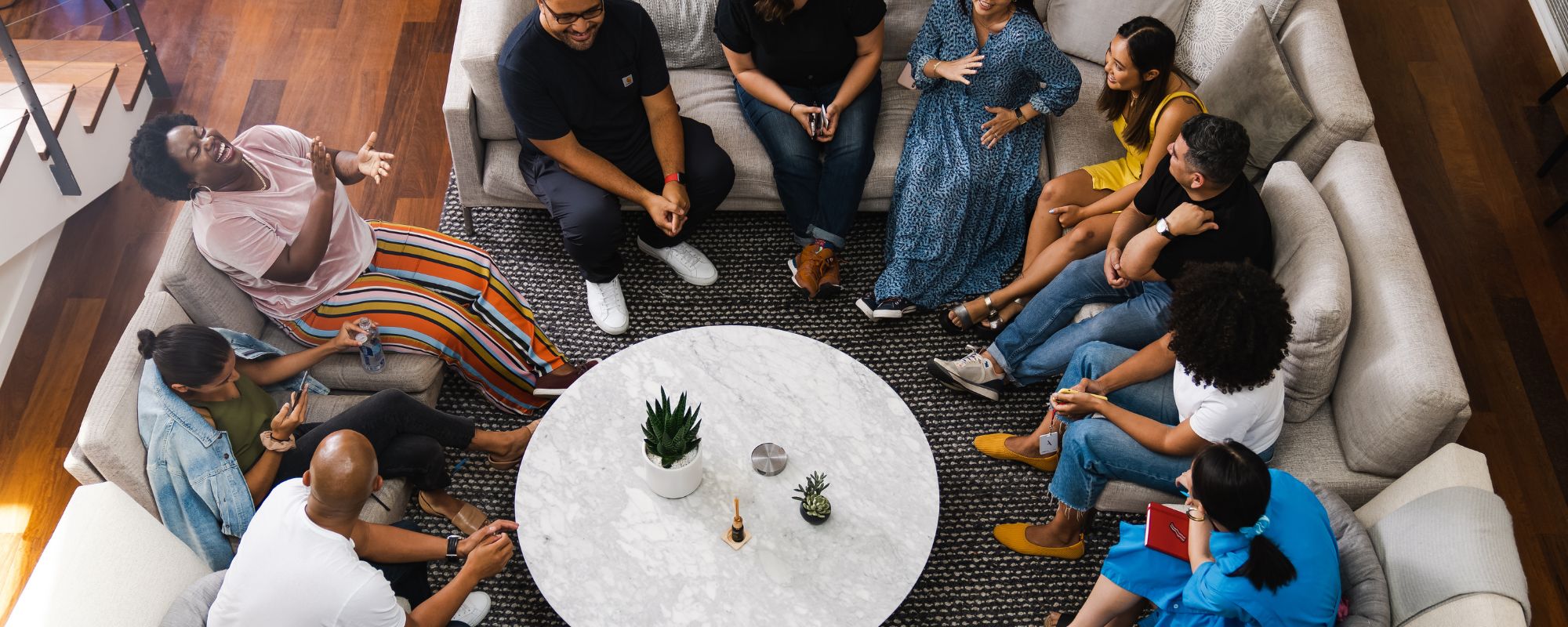What Is a Codependent Relationship?
A codependent relationship involves an imbalance of authority and power between two people. In a relationship, romantic or not, codependency occurs when you alter your behaviors, interests, and beliefs to fit those of your partner.
Codependent behaviors are especially common in relationships involving substance use disorders (SUD). Prioritizing someone else’s needs over your own can be extremely unhealthy. You can lose sight of your life goals and who you are as an individual.
Codependent relationships are typically made up of two people: the codependent and the enabler:
- A codependent partner wants to feel needed by others and will make radical decisions and changes to themselves to fit the enabler’s needs.
- The enabler is often content with the codependent dynamic because their needs are being met by their partner, friend, or family member. In other cases, the enabler might grow to feel smothered and annoyed with the neediness of the codependent person.
Regardless of the enabler’s viewpoint, codependent relationships are extremely unhealthy and emotionally and mentally draining for both people.
Signs of a Codependent Relationship
The signs of codependency in a relationship are often difficult to recognize and easy to overlook when you’re in the midst of one. Here are some common behaviors to be mindful of if you’re in a codependent relationship:
- Putting someone’s needs above your own
- Saying yes even when you want to say no
- Avoiding any form of conflict or confrontation
- Resorting to unhealthy coping mechanisms (alcohol, overeating, drugs, etc.)
- Unable to set or stick to boundaries
- Difficulty expressing your own emotions and feelings
- Low self-esteem and self-worth
- Fear of abandonment or loneliness
- Difficulty trusting yourself or others
- Needing validation and approval from others
- Controlling and manipulative behaviors
Codependent relationships can fuel feelings of worry, concern, and anxiety. More often than not, the codependent partner experiences distress from feelings of inadequacy and fear of rejection.
Codependent behaviors often indicate an insecure, anxious attachment style. People with anxious attachments are susceptible to a strong fear of abandonment that may result in intense jealousy or a suspicious mentality. To combat their fears of abandonment, they l become whatever they believe their partner wants and needs. As a result, they never fully develop a sense of self or they discard their identity in a relationship and devote their time and energy to the other person. Lacking a sense of self is a dangerous line to walk, especially in a codependent relationship where a full-blown identity crisis can occur.
Signs of a Healthy Relationship
In a well-functioning relationship, it is normal to naturally depend and rely on your partner from time to time. When two interdependent people come together who already have a strong sense of self, it creates a more functional and healthier foundation.
Signs of a healthy relationship include:
- Mutual trust and respect
- Consistent, open communication
- Supportive of each other’s goals
- Partners have their own hobbies and interests
- Assisting in each other’s personal growth
- Taking responsibility for behaviors and actions
- Encouraging accountability
- Spending quality time together
- Allowing for personal space
- Maintaining healthy boundaries
- No secrets or lies
Relying on your partner to love, respect, and spend time with you is completely normal and expected when you’re in a romantic relationship. Codependency is when you feel like you cannot function without their love, respect, or presence—that is unhealthy for both parties.
Why Am I Codependent in Relationships?
If you are codependent in relationships, contributing factors may include:
Whether you like it or not, your past will always have an impact on the way you respond to people or situations and how they affect you.
Your past doesn’t have to define you but it will always play a part in the way that you react to certain situations, good and bad. No type of trauma should ever be overlooked or minimized. All forms of trauma can affect people deeply. You can learn how to become stronger because of it. You don’t need to just accept the fact that you are codependent because of a past relationship or trauma. You can learn ways to manage your feelings or behaviors so you can become more interdependent.
If you or a loved one struggles with codependency due to past trauma, relationships, family history, or other challenges, some options for help include:
- Individual therapy
- Healthy self-care practices
- Maintaining your physical and mental health
- Attending codependent support groups like CoDA
Codependency and Addiction
It can be especially dangerous having a significant other in recovery as you start developing codependent behaviors. You begin to feel the need to “fix” them and always be present and available. Without the constant fulfillment of helping or caring for your loved one, you might start to feel lost and without. You can lose sight of your own wants and needs and end up devoting all of your time to them. Adapting to codependent behaviors as a coping mechanism is not healthy for you or them.
How To Stop Being Codependent
Codependent relationships can make you lose sight of your wants and needs because you’re so engrossed in your partner, friend, or family member’s life. If you’re chronically or habitually more focused on others than on yourself, you can become like a ship that’s all sails with no anchor. If you’ve recognized that you struggle with codependency, there are several ways that you can begin to step out of these behaviors and emotional responses, such as:
1. Focus on yourself
Spend time doing things that you enjoy, whether that’s an old hobby or something new that you’re looking to explore, just do it. Set goals for yourself and start focusing on achieving them. It’s okay to be selfish sometimes, especially when you’re working towards creating a better life for yourself. When you’re in a codependent relationship, it’s hard to imagine breaking your pattern and putting your interests above someone else’s.
2. Prioritize your needs
Start listening to your mind and body and make decisions that benefit you, not other people. If a friend asks you to hang out and you’re tired or just in need of a mental break, don’t feel like you must say yes. If you’re not mentally or physically feeling your best, you’re only going to burn yourself out trying to please others.. If your partner or friend cares about you, they won’t be offended when you say no.
3. Practice mindfulness and acceptance
Be mindful of your codependent behaviors and habits. When they start to come up, simply recognize them rather than beating yourself up for your feelings. Be gentle with yourself and your needs. Instead of feeling like you need to take care of someone else, focus on taking care of yourself first. Healing takes time. If you struggle with codependency, you may not be fully healed from something in your past. Once you realize this and start to work on bettering yourself, your healing journey begins. Be patient and compassionate with yourself during this time and appreciate how far you’ve come.
4. Be straightforward when communicating
At first, you may feel bad for saying no and setting boundaries. You might feel like you have to explain yourself or make excuses. This can lead to convincing and compromises on both ends. Be clear about how you’re feeling and give a direct answer, leaving no room for convincing. Communication is a key factor in any interpersonal relationship. If you and your partner are not mutually communicating your needs with one another, it leaves room for confusion and misunderstandings. Be honest about what you’re feeling, what you’re thinking, and what you want.
5. Practice self-care and self-love
Engaging in self-care and self-love can feel foreign when you’ve always put your needs on the backburner. You’re not used to focusing on yourself and prioritizing your needs. Self-care doesn’t only look like upping your skincare routine or going for a massage. Self-care can be anything that nurtures your mind and body. Examples of self-care could be working outs, going to the beach or lake, hiking, taking a nap, or calling a loved one.
The self-love journey can be a long one, but it is worth it. If you’re thinking of getting into a relationship, it’s important to establish a balanced sense of self before doing so.
Reach Out
Here at Royal Life Centers, our mission is to provide customized addiction treatment services best suited for your clinical needs and situation. Our admissions specialists can connect you with outreach providers that will help you get the treatment you need for long-term recovery.
If you or a loved one is struggling with codependency and addiction, please reach out at 877-RECOVERY. Our addiction specialists are available 24/7 to assist you through this time and help you find hope in recovery.
Author
-
Allie Kraska serves as the Organic SEO Growth Manager for Aliya Health Group’s nationwide network of addiction and behavioral health treatment centers, including Royal Life Centers. She develops and implements content strategies, monitors and analyzes SEO performance, identifies areas for improvement, and optimizes marketing team efforts to increase visibility and sustain growth. When writing for Aliya Health Group, Allie aims to provide actionable recovery advice from an educated, experienced perspective. She earned her BA in English Language and Literature with a minor in Painting, Drawing, and Print-Making from the University of North Florida.
View all posts



















